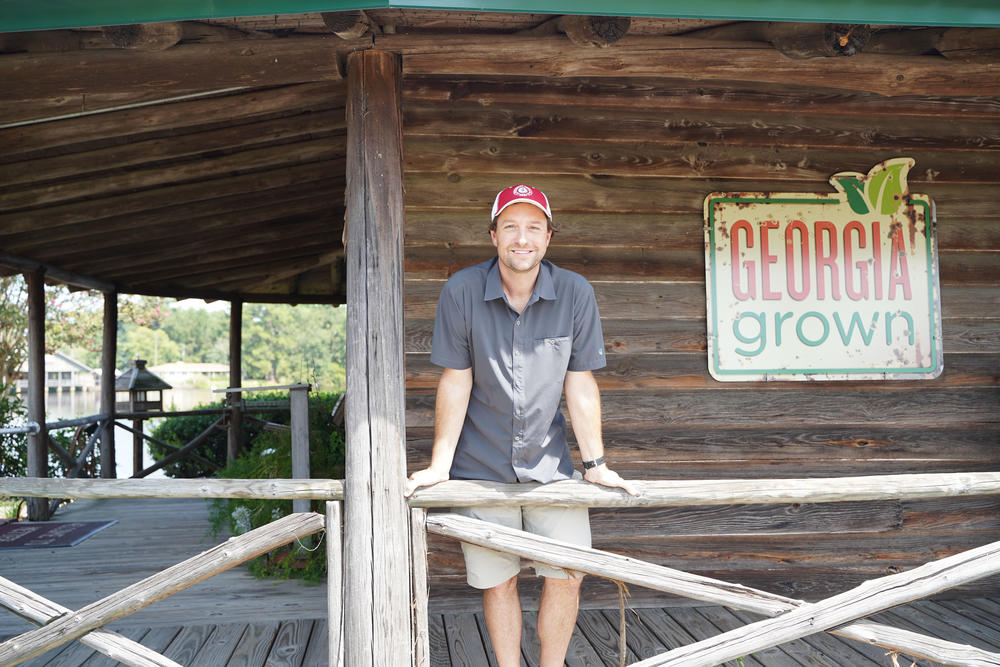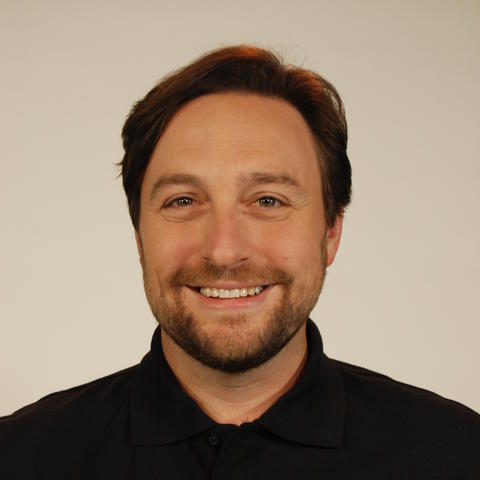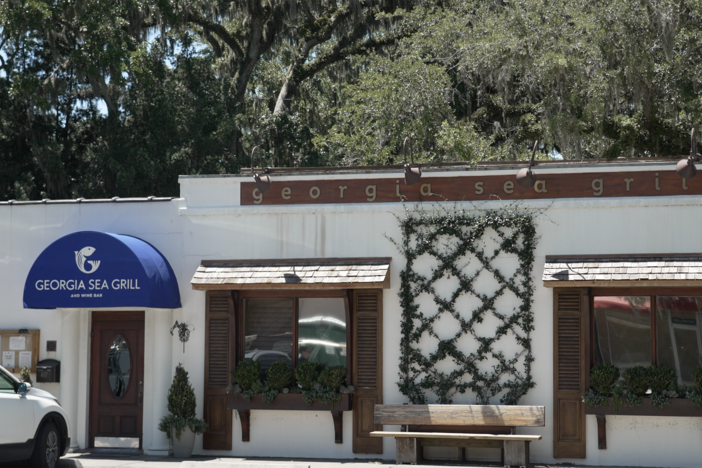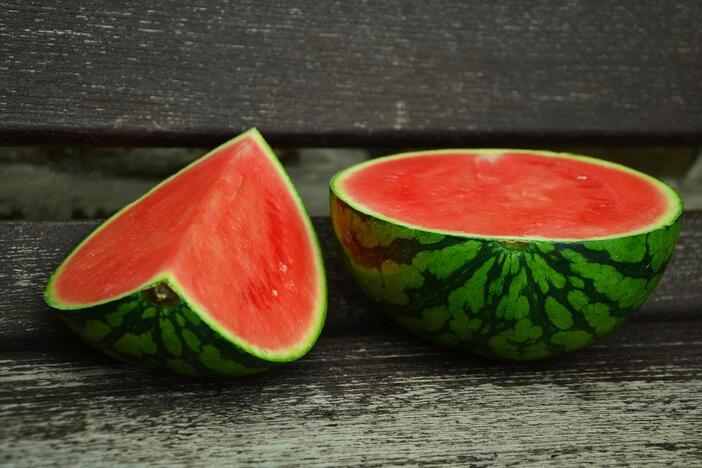
Section Branding
Header Content
A Fork in the Road Podcast: BONUS! Behind the Scenes
Primary Content
How did A Fork in the Road get started? Where did the idea come from? Does David Zelski record episodes all by himself? How far does David drive to record an episode of A Fork in the Road? Find the answers to these questions and more in this very special bonus episode of the Fork in the Road podcast.

David Zelski: I think chicken stories are always funny. I learned from farmers that chickens are dumb. Turkeys are dumber.
Theme Song: I came from the mud, there's dirt on my hands. Strong like a tree, there's roots where I stand.
David Zelski: I'm David Zelski, and this is the Fork in the Road Podcast presented by Georgia Grown and the fine folks at Georgia Public Broadcasting. Each episode, we feature stories from Georgia's farmers, fishermen, merchants, artisans, chefs and others who help provide Georgia grown products to folks in the Peach State and beyond. Today is a special bonus episode, a kind of behind the scenes of A Fork in the Road. I'm joined by my producer at GPB, Jeremy Powell.
Jeremy Powell: And I'm glad to be here because you know that people love you in this building, and anytime anything gets posted on on Facebook or whatever, like people love A Fork in the Road.
David Zelski: That is awesome. Thank you. Yeah. Especially the part about people in this building. I have a long history here and love a lot of the folks here as well.
Jeremy Powell: And so how did A Fork in the Road start?
David Zelski: A Fork in the Road started off some of the stories I did with Georgia Traveler originally. I just loved doing these stories. I went to the Hunter Cattle Company. That was one I went to in Brooklet, kind of near Statesboro, and I just saw this family. Hey, we're going to run a farm. We're going to have chickens. Our kids are working. Our kids are seven years old. They know what they're doing on the farm, but they're also having fun. They're jumping off hay bales, tackling each other. Onward to Brooklet, where the farming family of the Hunter Cattle Company put you to work, but feed you like a king. So let's buy some land and round up a few chickens. Maybe purchase a pig or two and call it a farm. Be it an impulse decision, or just a massive leap of faith. In just a few years, Papa Del Ferguson and the Hunter Cattle Company have become the talk of the town or region in southeast Georgia. I went there with, Kevin Ward and Nick Bills a couple of guys that I worked with at the time, and we filmed this story and we had the best time. We had a dinner breakfast with the family. We were eating eggs at night, hanging in their barn. I'm like, this is a great tourism story, but I'm also learning a lot about farming. Then I did the Georgia Buffalo Ranch, I did Savannah Bee Company, and I realized all these agriculture stories are some of my favorite ones that I was doing for Georgia Traveler, agritourism, Agra agriculture, agritourism. And so I put together, you know, some ideas like, hey, this would be a good show to pitch one day. And, I went off, on my own in 2016, still had great relations with GPB and, had someone named Heidi Jeffers. She was in the city of Metter. She still is actually doing great things in the city of Metter. She came to me and said, David, you have to do a show that's kind of about like like Georgia Traveler, but it's more about farming. I said, Heidi, hang on a second. I had this thing. Just the idea, you know, the concept in my back pocket of some agriculture related stories I just did a GPB. She introduced me to, Tom Neville, Matthew Kulinski, some folks at Georgia Grown, we talked a lot about the discussions, went on a long time. I'll just say that. And they liked the idea. They supported the idea. One thing led to another, 2020 came, we said, hey, let's let's start doing the show. Let's see how these farmers are pivoting during this crazy time during Covid. And so I was going out there filming these stories with a mask and gloves, the only one on the interstate sometimes, and learning how these farmers were pivoting. So we started doing these stories and all the stories we had in our back pocket about agriculture. One thing led to another started combining them into episodes. GPB, I shared this with them. They loved it, had a great relationship with so many of the the fine folks here that we talked about at the beginning. I know it's kind of a long story, but that's how it all came together. A lot of help, a lot of people who believed in the show. And I thought the people of Georgia would like it, and it seems they do, and I'm thrilled about that.
Jeremy Powell: Are you a one man band or do you have I mean, you talked about these other people that have helped and everything, but when you go out to the farm, is it just you?
David Zelski: Often. You know, 70% of the time it is. I have some great folks that I work with that I've worked with a long time, people associated with GPB, Wesley Nichols, Craig Whitley, Tom Greer, those are three guys that I've worked with a long time, in the past here at GPB, and they've helped me out. When I do chef segments. I like to be on there and have fun with the with the chef, a wine tasting, tasting honey, I like to have someone with me. Sometimes I get in a bind and just prop up the camera. Hope autofocus works and have to check it. But there is something neat about just kind of filming it as you go along and talk to them from behind the camera. It's been kind of fun, but also love, you know, companionship and going out and filming with these folks. Folks at Georgia Grown, Matthew Kulinski, particularly is invaluable. His knowledge. He's been here since Tommy Irvin was Ag Commissioner. If I ever have questions about how the process works, when I need a film, these things, when they're growing, when they're seeding all of that. And he's connect me with people at the Cotton Commission, people in fruits and vegetables. So I've made all these great contacts and learned about all these people that that care. So yes, I do a lot of it on my own, but I have that help if I need it. And, it they're invaluable.
Jeremy Powell: And it sounds like, each episode, each story is a research project for you. Like you're learning about this stuff.
David Zelski: Yeah. Kind of becoming a generalist. You know, I have one banana tree I just plant at my house because I heard it's hard to hear. I'm trying to be a little farmer on my own. I have a cabbage that keeps failing. I can grow potatoes.
Jeremy Powell: Okay.
David Zelski: So I'm learning some things. I'm learning some things. But it is fascinating to be able to share these stories. I, I was talking with my barber a couple months ago, and I just told her about bees, and I think she really cared what I was talking about. And she just kept asking more questions about bees because I did so many stories on honey bees, and they're fascinating creatures. So I love learning this because it's just it's fun to share. And as long as people listen, I'll keep talking.
Jeremy Powell: And when you're talking about Georgia specifically, like there's a lot of ground to cover, I have put together episodes where you were in, Suches, Georgia, which is up near Blue Ridge and episodes where you were in Dixie, Georgia, which is ten miles north of the Georgia/Florida line.
David Zelski: Yeah, the pig farm.
Jeremy Powell: Like you have been all over. Where do you live? And, like, how far are you going? How many miles are you traveling?
David Zelski: I live in Smyrna, so I try not to leave at rush hour. Quite often I'll drop my sons off in East Cobb and, try to make my way to Valdosta by noon, you know? Haven't gotten a ticket yet. Put a lot of miles on my old Ford. But, you know, it's it's a lot of planning in advance. When do we need to be there? Sometimes I'll need to get a hotel because farmers get up early, and, so I need to be at some of these destinations, that are far away from my home, but find the time. You know, you are on a seasonal schedule when it comes to a lot of the agriculture, but there are also things like cheese straws and cattle, things you can film almost any time of year, whether it is and Suches or whether it is in Dixie or Valdosta.
Jeremy Powell: What's the story you like to tell at parties?
David Zelski: Party stories? I think chicken stories are always funny. I like to, tell people stuff I learned from, like the birds or the the funniest. The turkeys and the chickens. I learned from farmers that chickens are dumb. Turkeys are dumber. That guy, Jeremy Chonko, he's of Grass Roots Farms. He's way down there in Waverly, kind of near Brunswick. And he was telling me about these chickens. He's like, I got to write about this one, and I'm spoiling in the show when it comes out, but, he's like chickens are fascinating. We have all these boxes, probably 25 boxes where they lay their eggs. This one random box over here, they will not lay an egg. It's like, He's like an every day I come here and I'm pulling their eggs. And every day they act like this has never happened. They've never seen me before. There's pandemonium. And then he did it. He pulled the eggs, and the chickens are screaming and running all over the place. Like this has never happened before. Someone's invading their lives. But turkeys are dumber. That's what I learned. So, I don't know what goes on with turkeys.
Jeremy Powell: Have you made friends from this show?
David Zelski: Absolutely.
Jeremy Powell: So you're down there for a long time. If you were at a farm, like, you can be there for hours, right? And then now you have buddies all over the state.
David Zelski: Yeah. And that's, that's what's great. And they, they're always saying hey you come back by here, please come see me. Please come, come pick up some eggs. Come pick up some cheese straws. I know I keep saying that I like cheese straws. Yeah. If you have cheese straws, let me know. I've made so many friends, and I keep up with them. You know, I'm on Facebook. I love to follow their progress. Got an email yesterday from Ann Wildes at the Blueberry Barn in Alma, Georgia. I learned to say Alma, not Alma.
Ann Wildes: I have blueberry coffee and blueberry tea. And of course, one of my best selling products is the blueberry barbecue sauce. I have two different types. I have the mustard base and the vinegar base, and people love these. And then, of course, I've got blueberry juice, blueberry juice, blueberry pomegranate juice. This is made right here in Alma, Georgia. Alma also grows pomegranates. I have blueberry salad dressing. I have blueberry pepper jelly. One of my favorites is this one called the butterfly. It's got pineapple, pecans, and cinnamon. And I tell people it's like eating a blueberry pie out of a jar.
David Zelski: She said, David, this show has done more for my business than anything. Thank you so much. And I don't want to say don't thank me, thank the people who put all this together. But it meant so much. And she's like, come to our blueberry festival, we love to have you there. And she just they're appreciative of the show and what it's done. And that just makes me so happy that I can help this business. Because this lady loves blueberries. She loves the Blueberry Barn, she loves everything related to blueberries, and it's her passion in life and it shows. And I felt it showed in the episode. Apparently it did, because people are going there. They're all going to the Blueberry Barn. They've seen Alma on the and you'll see it on the interstate, it looks like alma, you're in between Tifton and Valdosta and you see it there. Stop off, get some of the best blueberries you've ever had. And those are my friends.
Jeremy Powell: What are some of the surprises? From interviewing people who, you know, farmers and makers and bakers and artisans and chefs and all these people, what are what are the things that have surprised you to learn?
David Zelski: That I could listen to these people for days and how darn smart they are. You know, they are so educated. It's a mix of school education and education picked up through generations of experience. They learned from their grandparents, they learned from their parents, they learned from their uncles and aunts. But they also go to school to learn this technology. They have to just like our world in video production, we have to keep up with the new camera that came out that just blows away your expensive camera you bought a year ago, right? They have to do the same every year. There's these massive conferences with this new innovative tractor. New way to bale hay. You know, these giant drones that are you're going to put on a program to, water and fertilize everything. It is unbelievable, the technology and what they have to learn, the science, the geometry of driving these tractors and, making sure everything's planted. You have to keep up. You have to be smart. You have to be dedicated and I've learned you have to love it to do it. When it comes to farming or manufacturing, I will say again, cheese straws.
Jeremy Powell: There's an episode that comes to mind when you say that the the one about the cotton sheets, the Southern Drawl.
David Zelski: Yes.
Jeremy Powell: One of the guys in that episode mentions going to Cotton School, and that's something I had no idea even existed.
Michael Brooks: So I went to Cotton School in 95, and I used to merchandise cotton down here in the South, and had a relationship with some of the mills.
David Zelski: Yeah. There, you know, you got Abraham Baldwin, ABAC as they call it in, in Tifton. They learn so much. There's so many farmers I've met that come out of ABAC. I, there was one farmer, at Providence Farms. He went to Cornell. His sister does marketing. She went to Cal Berkeley. There is, you know, Cornell. It's a huge agriculture Ivy League. UGA they have they have a great department. So, you know, there is there's so much education involved in that.
Jeremy Powell: What is it you want to do next with A Fork in the Road? What's the thing that's been on your list and you haven't been able to quite make it there yet?
David Zelski: I still haven't done my alpaca story and I've got one. I'm not going to say which one, but I remember I did I did, the zoom interview a couple of years ago and I'm like, I need to do an alpaca story because I know they got them here. I've seen them. They have been South Georgia. They have in North Georgia. Those animals cracked me up. And just just looking at them, they're they're funny, but they people get the fur. They, they do classes on. They make little dolls. They make, anything out of the alpaca fur. And I just, I think they're fascinating animals. So I look forward to doing that one.
Jeremy Powell: I feel like you just want to hang out with an alpaca.
David Zelski: Yeah. Yeah.
Jeremy Powell: For a couple of hours.
David Zelski: They're smarter than turkeys. That was a blast. Thanks for listening to A Fork in the Road. There's a new season of the podcast coming soon. Find it at GPB.org/Podcasts or wherever you get your podcasts.
The A Fork in the Road TV show airs Saturdays at noon and Sundays at 6:30 a.m. on GPB-TV. Check your local listings for other replays throughout the week and watch all episodes anytime at GPB.org/ForkintheRoad. Please download and subscribe to the Fork in the Road podcast at GPB.org/ForkintheRoadpodcast or on your favorite podcast platform as well.

How did A Fork in the Road get started? Where did the idea come from? Does David Zelski record episodes all by himself? How far does David drive to record an episode of A Fork in the Road? Find the answers to these questions and more in this very special bonus episode of the Fork in the Road podcast.





